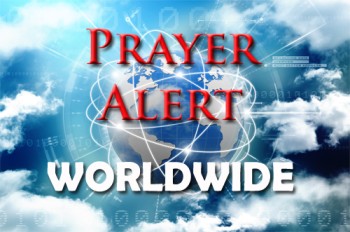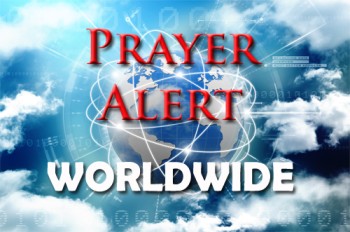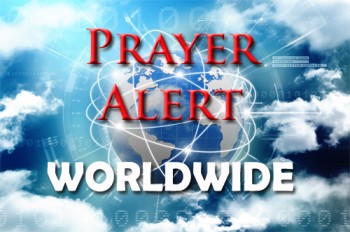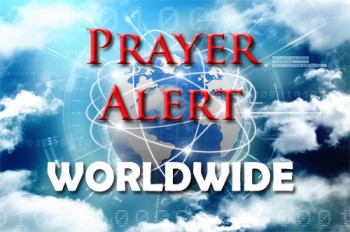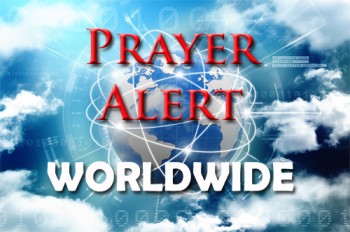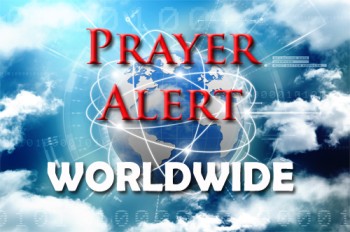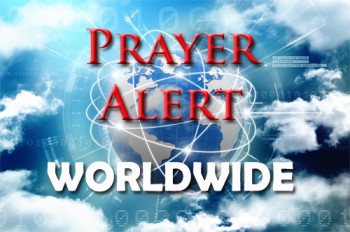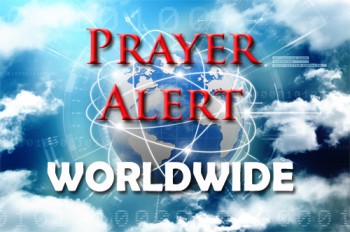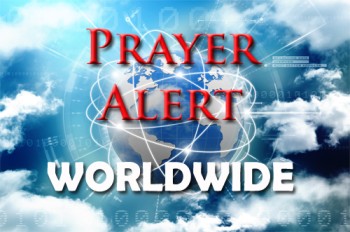Displaying items by tag: Africa
Somalia: president narrowly avoids al-Shabaab bomb
On 18 March Somalia’s president, Hassan Sheikh Mohamud, narrowly survived a roadside bombing in Mogadishu. The massive explosion killed at least ten people, including several presidential bodyguards and one journalist. Al-Shabaab claimed responsibility, highlighting security vulnerabilities as the militant group advances toward Mogadishu. The attack occurred while the president was traveling to oversee military operations against the terrorist group. Following the bombing, Somali police briefly shut down a local radio station and detained 22 journalists who reported the attack. Police allegedly deleted their footage before releasing them. The group, linked to al-Qaeda, has vowed to capture the capital before June, intensifying concerns over regional stability; they are advancing towards Balcad, only thirty kilometres away.
Tunisia: forty opposition figures put on trial
The trial has begun of forty prominent Tunisian opposition figures accused of conspiring against state security. The proceedings sparked outrage as nine detained defendants were forced to attend remotely, a move decried as a violation of fair trial standards. Families of the accused and demonstrators outside the courthouse demanded transparency and judicial integrity, chanting against political repression. While critics regard the trial as part of president Kais Saied’s crackdown on dissent, some citizens support his actions, blaming the opposition leaders for economic hardships. International organisations, including Amnesty International and the UN, have condemned the mass prosecution as a sign of Tunisia’s democratic decline. Meanwhile, the country’s economic crisis deepens, with inflation, unemployment, and stalled IMF negotiations adding to public discontent. The outcome of the trial could shape Tunisia’s political future and global standing.
Sudan: satellite images show use of advanced weaponry in civil war
Satellite images have revealed drone activity at Sudan’s Nyala airport, an RSF stronghold in South Darfur. These developments highlight the continued influx of advanced weaponry fuelling Sudan’s brutal conflict. The RSF, engaged in a power struggle with Sudan’s army since April 2023, has used Nyala as a base for its offensive on al-Fashir and attacks on civilians in the famine-stricken Zamzam camp. Analysis suggests the RSF is using Chinese-made CH-95 drones; the Sudanese army has accused the UAE of supplying them. Both factions have used drones in airstrikes, causing widespread destruction. Despite a UN arms embargo, foreign weapons continue to flow into the region, worsening the humanitarian crisis. Meanwhile, many relief organisations are withdrawing from the country, and up to 80% of the emergency food kitchens are closing. See
South Africa: court battle over African penguin’s future
A pivotal high court hearing in March could determine the fate of the critically endangered African penguin. Conservationists have filed a legal challenge against the South African government and the commercial pelagic fishing industry over former environment minister Barbara Creecy’s decision to extend island fishing closures for ten years. The case, set for 18-20 March, will address constitutional rights, scientific research, and international conservation law. The dispute centers on whether competition for fish stocks, particularly sardines and anchovies, is a key factor in the penguin's decline. A panel of international experts suggested using a scientific method for determining island closures which would be of maximum conservation benefit to the penguins and the smallest cost to commercial fisheries. Instead, Creecy extended existing closures without adopting new recommendations. With the African penguin’s status recently changed from ‘endangered’ to ‘critically endangered’, the court's ruling carries profound implications for its survival.
Uganda: opposition leader ordered to appear in court
On 11 February a magistrate’s court ordered opposition leader Dr Kizza Besigye to appear and explain his absence in a case where he is accused of inciting violence during 2022 protests against rising living costs in Kampala. In a handwritten letter, Dr Besigye had stated he was ‘currently indisposed’. The magistrate emphasised the importance of personal liberty and scheduled the next hearing for 14 February. Notably, it was observed that there is no remand warrant currently justifying his detention, indicating he is being held without clear legal grounds. This development follows a recent supreme court ruling halting the trial of civilians in military courts. Dr Besigye has begun a hunger strike to protest against his continued detention, and there are concerns about his health: see
Egypt: Christian convert freed after three-year imprisonment
Egyptian authorities have released Christian convert Abdulbaqi Saeed Abdo, who spent three years in prison for discussing Christianity online. Abdo, a husband and father of five, fled Yemen after facing death threats for leaving Islam and sought asylum in Egypt. Arrested in 2021, he was detained for participating in a private online group about Christianity. His imprisonment involved multiple transfers, poor health, and a hunger strike in protest at his conditions. Abdo expressed gratitude for those who prayed and advocated for him, stating,'It isn’t right that a government should tear me away from my family for my faith’. Although released, his legal case remains unresolved. His son, Husam Baqi, condemned religious persecution, emphasising that freedom of belief should be a basic right. ADF International has submitted his case to the UN, calling his imprisonment a severe human rights violation. Stanford fellow Ayaan Hirsi Ali called his treatment 'grotesque’.
South Africa: Trump threatens funding cuts
Donald Trump has threatened to cut all US funding to South Africa over unproven claims that the government is seizing land from white landowners. Cyril Ramaphosa has moved swiftly to deny these claims categorically. The controversy stems from South Africa’s new Expropriation Act, which allows land redistribution in the public interest but does not permit arbitrary seizures. Legal experts argue the law is a constitutional mechanism to correct racial disparities from apartheid, not a tool for mass expropriation. Trump’s claims may have been fuelled by AfriForum, a right-wing South African lobby group which has long pushed the narrative of land grabs and a so-called ‘white genocide’, despite researchers debunking these assertions. Meanwhile, South African officials warn that retaliatory measures, including restricting mineral exports to the USA, could follow if Trump enforces funding cuts.
Uganda: vaccine trial against Ebola
Uganda, in partnership with the WHO and other health organisations, has launched its first-ever vaccine trial for the Sudan strain of Ebola. The trial began just days after a nurse succumbed to the virus, with additional cases confirmed among his relatives. Researchers at Makerere University and the Uganda Virus Research Institute expedited the process, ensuring compliance with ethical and regulatory standards. The candidate vaccine, donated by IAVI and funded by international partners, aims to improve pandemic preparedness. Over 2,000 doses are available, though the manufacturer remains undisclosed. Uganda has a history of Ebola outbreaks, including a deadly 2000 epidemic. Contact tracing remains essential in containing the disease. This outbreak comes amid US funding freezes following the Trump administration’s withdrawal from the WHO. The region has also faced recent outbreaks of Marburg virus in Tanzania and Rwanda. Officials hope the vaccine will be a breakthrough in combating future Ebola epidemics.
DRC: fighting between army and Rwandan-backed rebels
Fighting persists between the Congolese army and M23 rebels in Goma, in the east of the Democratic Republic of Congo (DRC), leaving control of the city uncertain. The M23, which according to the UN is supported by thousands of Rwandan soldiers, claims to hold the provincial capital, though Congolese authorities dispute this. Rebel patrols have been reported in western Goma, while Congolese forces are reportedly guarding the airport. With independent access to parts of the city restricted and communication infrastructure disrupted, reliable updates are scarce. The fighting has forced thousands of civilians to flee. The volatile region is rich in minerals that are critical to much of the world’s technology. Kenyan president William Ruto, describing the situation as ‘very complicated’, said that it could only be solved diplomatically: see
Tanzania: opposition party elects new chairman
Tundu Lissu has been elected chairman of Tanzania’s main opposition party, Chadema, ousting Freeman Mbowe, who had led the party for over twenty years. Lissu won a tightly contested election with 51.5% of the vote, campaigning on promises of change and stronger opposition to the ruling CCM party. Mbowe emphasised his record of strengthening the party and accepted the results graciously. Lissu, a vocal critic of the government, survived a 2017 assassination attempt and lost the presidential election in 2020 to John Magufuli. He has accused Magufuli’s successor, Samia Suluhu Hassan, of repression, and strongly spoken out against human rights violations and recent abductions and disappearances of citizens, including opposition officials. He and other colleagues have been arrested in recent months amid a government crackdown on opposition demonstrations. His leadership signals a shift towards a bolder opposition stance ahead of the October presidential elections.
